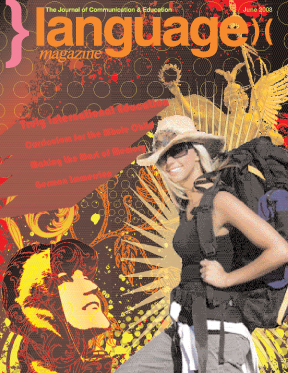Multicultural Education is No Luxury
During difficult economic times, there is a general acceptance that education should endure budget cuts like all public services. We are led to believe that the most we can expect from our educational institutions during hard times is basic instruction in the core subjects which will be enough to give today’s students the tools they need to survive. But, the world has changed, and those basic skills are unlikely to be enough for the next generation.
Developments in communications and transport have radically altered work patterns and methods of production, and this process will only accelerate in the near future. Immigration flows will continue to follow the demand for labor which is likely to be more erratic as corporations become more flexible in their reactions to market fluctuations.
The growth of outsourcing is a good example of how the world is changing, but a recent business deal may be even more indicative of what is to come: Ford’s announcement a couple of months ago that it was selling its UK-based Jaguar and Land Rover divisions to Indian car manufacturer Tata would have been unbelievable twenty (maybe even ten) years ago.
Even if this takeover has little effect on the company’s employees at the moment, it is easy to see that our children will need to operate in a multicultural, international environment even if they never leave their own neighborhood.
The ability to speak languages and understand different cultures will be a necessity. Without such skills, the prospect of such a rapidly changing society will only invoke fear.
Luckily, many of our communities are now so culturally diverse that we have the opportunity to integrate multicultural education across the curriculum but this is no substitute for a coherent plan to ensure that our children are better prepared for the society into which they will grow.
It may seem tactless to suggest that now more than ever we should be encouraging students to study abroad and broaden their cultural horizons even as school districts are having to lay off teachers, but, if we truly want to prepare our children to not only survive but succeed in their world, it may be our best option.
In this era of standardized testing, there is little room for maneuver to incorporate multicultural education into existing curricula but even less chance that it will become compulsory, so it is up to individual teachers to do what they can to encourage multicultural understanding so that our next generation has the flexibility to flourish.
IN THIS ISSUE:
Curriculum for the Whole Child
Elia Corona and Jeanette Gonzalez-Quiceno explain how two school districts are using innovative methods to help English learners achieve their potentials
Toward Total Recall
Hall Houston examines techniques to improve memory skills in the language classroom
Zen and the Making of the Multicultural Person
Josette Bonafino suggests that the less tangible benefits of study abroad may be the greatest
Willkommen
Christine Tsai scours the regions of Germany to find the ideal immersion program
Waltzing Lyrically
Christine Tsai samples German programs in Austria
Studying Abroad on a Budget
Cecile Lopategui offers advice for international students faced with a devalued dollar
Last Writes
Richard Lederer on Sporty English Language







